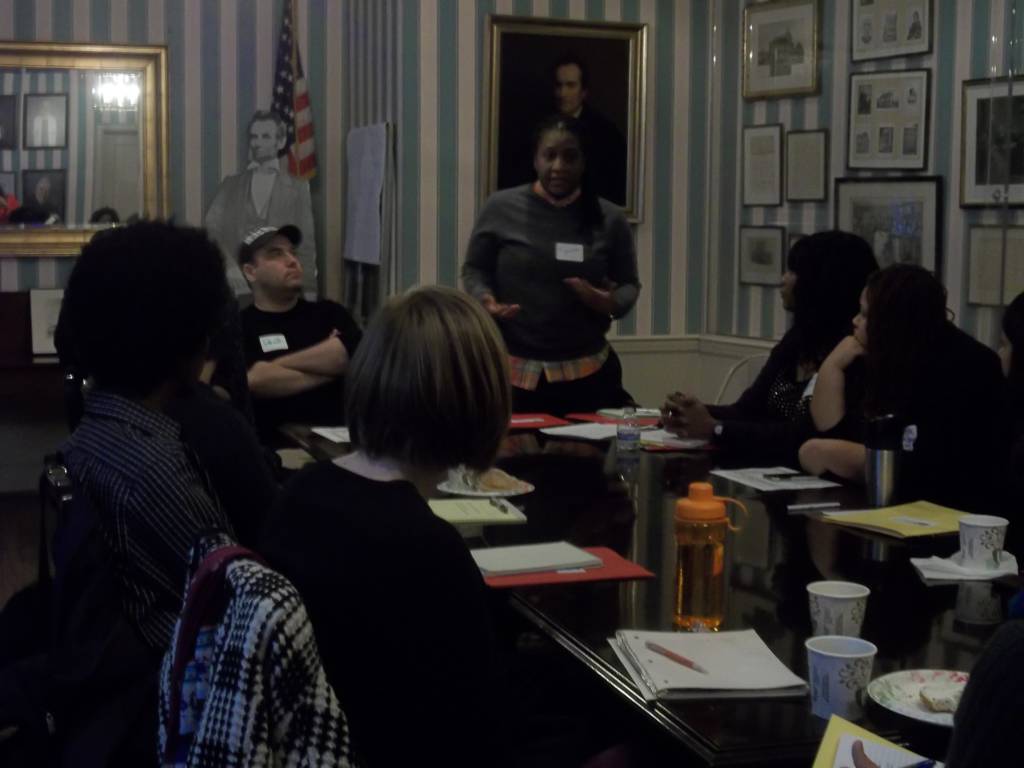Advocates and service providers for the poor and homeless dedicated a recent weekend to wrestling with some of the thorniest questions they confront in their work.
How do you balance the necessity of helping struggling people cope with daily crises against the need to work for long-term change in society? How do you move from offering temporary assistance to empowerment? How do you cultivate fairness within your own organization?
The answers often lie in giving a larger role to the people you are trying to help. Allowing the poor themselves to determine the kind of support and services they need can open doors to deeper change, according to organizers of the Service to Justice conference, held here in the District on Jan. 24 and 25.
The meeting drew about 250 participants representing nearly 100 different groups, working to alleviate poverty in the District and beyond.
The event was planned as an opportunity for groups and advocates to discuss ways to improve their work and to examine the impact they have on clients and in the communities they serve with the ultimate goal being equity and inclusion. Some of the topics covered in the workshops were community organizing, team structure, self-directed care and fundraising.
“Some of us see ourselves as two different groups, the ones providing services and the ones receiving them. In this equation, the recipients are somehow seen as being less than the providers,” said speaker Rob Chisom with The People’s Institute for Survival and Beyond. “We’ve got to change this dynamic, this illusion in society, and bring ourselves to a place where we are all equal and we all can prosper.”
Bread for the City, which offers a range of services in the District including legal assistance and a food pantry, had staff members in attendance. The organization has taken steps in recent years to include its clients in the structure and decision-making process. In 2009, it formed a client advisory board that has a seat at the table during staff and board meetings.
Today, the client advisory board includes about 20 members. One member, Denice Speed, has been on the board for two years. She said she has seen the difference the board is able to make in helping to shape and develop programs at the organization, and she tries to recruit others to join.
“It is so important for the clients to be involved in the process and running an organization and we want more people to be engaged,” Speed said. “We are able to push for funding on projects that are important to us and the community as a whole.”
Some clients of various service groups said they felt as though their voices are not heard in the decision making process, and that some providers lack the open door policies necessary for clients to become engaged. Others such as Carlton Harris, who was formerly homeless and now volunteers in outreach work for the People For Fairness Coalition, said while some organizations will listen to grievances, that does not always translate in to action.
“Many times I felt like people were listening but they didn’t hear me. I could talk about things I saw that needed improvement or make suggestions, but rarely did I see anything come from it,” Harris said.
In addition to creating environments of inclusion was the idea of giving clients a chance to join an organization in a professional role by providing opportunities for career training and help with the application and hiring process.
“It’s important to create leadership and development opportunities to allow clients to become members of the organization that is providing them services,” said Sean Thomas-Breitfeld, with Building Movement Project. “This way people will know and feel like they have useful skills while also being able to give back.




